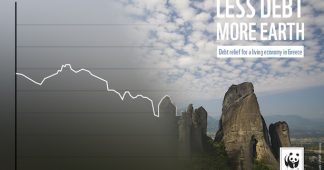By Wolfgang Streeck
November 2018
Abstrac
tEuropean social policy changed with the evolution of European and global capitalism, the scope and shape of European-level international institutions, the size and heterogeneity of “Europe” as a polity, and the politics of the European national welfare state. The paper outlines the long-term trajectory of European social policy, from the intended absorption of national welfare states into one united, federal welfare state to a selective updating of national social policies by European social policies; to multi-level coordination of national systems by special European institutions; to European soft law helping national “modern-ization” on the “Third Way”; to exposure of national systems to international economic competition as an incentive for “structural reform”; and to subordination of social policy, national and European, to the defense of a common hard currency through fiscal consoli-dation – from, in other words, federal social democracy to competitive “adjustment” of national social protection and social life to global markets.
Contents
Stage One: State-administered mixed economy 4
Stage Two: Accommodating labor militancy 5
Stage Three: Bringing capital back in 9
Stage Four: Europe on the Third Way 13
Stage Five: Social policy submerged 16
Future prospects 20
References 24
Lectures that start with definitions often turn out to be on the more boring side. I have to take that risk because the way I intend to treat my subject requires various upfront clarifications to escape from the multiple and more often than not intended ambiguities of key terms in a field that is, by nature, heavily politicized. To make up for this, I will make an effort to present, I hope, a somewhat original account of the historical trajec-tory, rather than the legal specifics, of European social policy as it has evolved into its present condition. Moreover, at the end I will suggest a number of conclusions, based on that trajectory, on what the ongoing conflicts in the European social policy arena, or what is left of it, may presage for the future of “Europe” and of the relationship between contemporary capitalism and market-interventionist democracy.
What is “European social policy”? There are two questions here: One, what is meant when social policy is called “European”; and two, how exactly must social policy be defined when considered in a European context? On the first question, it appears that there are three different ways in which social policy may be, or be imagined to be, “Eu-ropean.” One is what is sometimes called the “European social model,” which refers roughly to what national social policies in Europe, or European national welfare states, are seen to have in common: a common denominator, or some kind of an average, of national “social models.” A second meaning, to be kept apart from this, refers to the social policies, whatever they may comprise, of the European Union, above and on top of national social policies. Here, European social policy may serve to supersede, regu-late, coordinate, perhaps protect, perhaps restructure the social policies of EU member states, adding a new, supranational layer of social policy on top of extant national social policy regimes. And third, European social policy may, as a federalist social democracy, absorb and replace – in other words, “integrate” – national welfare states to build a uni-fied, European welfare state with identical social policies for Europe as a whole
Read more at https://pure.mpg.de/rest/items/item_3014631_1/component/file_3014632/content











